42 Must-Try European Fruit Products for Your Pantry
European fruit products represent a vibrant tapestry of culinary traditions and agricultural expertise.
Crafted with meticulous care, these delectable offerings showcase the continent's rich gastronomic heritage.
Passionate producers transform local harvests into extraordinary edible experiences that tantalize taste buds.
Each region contributes unique flavors, techniques, and cultural nuances to its fruit-based creations.
Artisanal methods passed through generations ensure remarkable quality and authentic character.
Small-batch production highlights the commitment to preserving traditional craftsmanship and supporting local communities.
These products reflect a deep connection between land, climate, and human skill.
Uncover the delightful world of 31 essential European fruit products that will spark your culinary curiosity:
What Are the Must-Try European Fruit Product Types?
From fragrant jams to delicate syrups and tangy preserves, Europe transforms fruit into irresistible products. Discover the staples found in kitchens from Paris to Prague.
Magiun De Prune Topoloveni
Magiun de prune Topoloveni stands as Romania's prized plum butter, a dense spreadable delicacy crafted exclusively from fully ripened dark plums grown near Topoloveni.
Skilled artisans slowly boil select plums until they transform into a concentrated, glossy preserve packed with natural sugars and vitamin C.
Traditional methods ensure entire plums - including skins - remain integral to preserve maximum nutritional value and fiber content.
Romanian households treasure this spread as a versatile condiment complementing breads, pastries, and desserts.
Small-batch production maintains strict quality standards, reflecting deep agricultural heritage.
Generations have passed down techniques for creating this smooth, intense fruit spread.
Regional farmers select only premium plums at peak ripeness.
Authentic Magiun de prune represents pure Romanian culinary craftsmanship.
Passata Di Pomodoro
Passata di pomodoro is a pure, uncooked Italian tomato sauce crafted from ripe summer tomatoes, originating in southern Italy as a smart preservation method.
Southern Italian regions like Sicily and Campania first developed this simple technique to extend seasonal tomato harvests.
Ripe tomatoes undergo blanching to remove skins and seeds before being carefully pureed into a smooth, vibrant sauce.
This versatile sauce serves as a foundational ingredient in countless Italian recipes, from pasta dishes to pizza bases.
Traditional preparation involves using fresh, sun-ripened tomatoes at peak season for maximum flavor intensity.
Families often make large batches during summer months to store and enjoy throughout the year.
Authentic passata celebrates the pure, unadulterated essence of fresh tomatoes without additional seasonings or preservatives.
Lingonberry Jam
Lingonberry jam dominates Swedish cuisine as a tangy, bright-red preserve crafted from wild berries harvested in Nordic forests.
Swedes transform these sour berries into a sweet-tart condiment by mixing them with sugar in two primary methods: raw rarorda lingon or cooked and jarred versions.
Traditional preparation involves minimal ingredients, typically just fresh lingonberries and sugar.
Swedish kitchens always stock this essential spread, which balances rich flavors with its sharp, vibrant taste.
Generations have enjoyed lingonberry jam as a staple in Nordic culinary traditions.
Commercial production ensures widespread availability throughout Sweden and neighboring Scandinavian countries.
Families continue preparing this classic preserve using time-honored techniques passed down through generations.
Sliwka Szydowska
Sliwka szydowska are premium Polish smoked prunes distinguished by their unique smoking process and exceptional flavor profile sourced exclusively from blue plums grown in Swietokrzyskie Voivodship's rich lime soils.
Regional plum varieties undergo careful selection based on high sugar and low water content before being dried and smoked for 48 hours in specialized rooms.
These prunes develop a dark blue exterior with wrinkled, shiny skin and maintain a homogeneous, elastic interior flesh.
Traditional smoking techniques create an intense, pure taste with distinctive smoky undertones.
Plum farmers meticulously harvest only specific Prunus domestica varieties suitable for transformation.
Expert processing ensures consistent quality and preservation of natural characteristics.
Geographic conditions contribute significantly to the prunes' superior texture and concentrated sweetness.
Specialized production methods define this distinctive Polish specialty.
Lekvar
Lekvar are traditional Hungarian fruit spreads prized for their dense, rich consistency that prevents leaking when used as pastry fillings.
Hungarian families craft this thick preserve from ripe seasonal fruits like apricots, cherries, and prunes during autumn harvest seasons.
Skilled home cooks slowly simmer fruits into concentrated, smooth jam-like textures perfect for stuffing baked goods like kiflis and cookies.
Palacsinta, classic Hungarian pancakes, frequently feature lekvar as a sweet interior filling.
Home kitchens typically prepare lekvar in small batches and store the spread in sealed glass jars.
Families enjoy lekvar as a versatile condiment spread across bread slices or consumed as an afternoon snack.
Regional variations depend on available fruits and family recipes passed through generations.
Each lekvar batch reflects personal cooking techniques and local fruit harvests.
Suska Sechlonska
Suska sechlonska are premium smoked prunes from Poland's Malopolskie region, distinguished by their unique traditional drying method originating in Sechna village.
These prunes emerge from specific Prunus domestica plums with exceptional characteristics that set them apart from standard dried fruits.
Craftsmen carefully select plums with high sugar and low water content for smoking and drying.
Special processing transforms the fruit into a deep blue to black wrinkled delicacy with sticky exterior skin.
Their interior reveals a juicy, pulpy texture with remarkable elastic flesh.
Smoky undertones complement the delicate sweetness that lingers after each bite.
Production follows strict regional techniques passed through generations.
Local artisans preserve this distinctive culinary tradition with meticulous attention to flavor and preservation methods.
Stafida Soultanina Kritis
Sultanas are sun-dried golden grapes with intense sweetness originating from Crete's unique agricultural landscape.
Greek farmers began cultivating Sultanina grape varieties after refugees from Asia Minor introduced these exceptional crops in the early 20th century.
Cretan climate conditions play a critical role in sultana production, with low rainfall and extended summer sunshine concentrating grape sugars dramatically.
Specialized harvesting occurs from mid-August through mid-September, when farmers carefully pick and immediately dry the grapes.
High temperatures and minimal moisture transform these fragile fruits into concentrated golden raisins.
Traditional drying methods expose grapes directly to sunlight, creating natural sugary treats.
Workers meticulously select only perfectly ripened grapes to ensure premium quality.
Sultanas represent a significant agricultural product that highlights Cretan farming expertise and environmental conditions.
Traditional Bramley Apple Pie Filling
Bramley apple pie filling represents a classic British dessert ingredient with exceptional quality standards.
Crafted from 97% ripe Bramley apples, this filling features apple pieces measuring at least 15mm in size.
Green-hued Bramley apples contribute a distinctively tangy and sharp flavor profile to the mixture.
Sugar, water, and a small amount of cornflour create a perfectly balanced consistency.
Lemon juice adds a subtle brightness to the overall taste.
Low sugar content ensures a crisp and juicy texture in each apple piece.
Bramley apples bring a unique tartness that distinguishes this pie filling from other varieties.
Generations of British bakers have celebrated this traditional apple filling for its pure and intense apple essence.
Rumtopf
Rumtopf are traditional German preservation techniques transforming seasonal fruits into a rich, rum-soaked dessert companion that captures summer's sweetness for winter enjoyment.
German households carefully layer ripe fruits like cherries, strawberries, apricots, peaches, and plums into ceramic crocks throughout the growing season.
Each new fruit harvest gets added to the existing mixture, creating complex flavor profiles as the preserve develops.
Overproof rum and sugar coat and protect the fruits, preventing spoilage while intensifying their natural sweetness.
Sugar helps balance the strong alcohol content and create a syrupy consistency.
Families typically let the mixture mellow for several months, allowing flavors to blend and deepen.
By Christmas, rumtopf becomes a versatile topping for ice cream, puddings, waffles, and sponge cakes.
Germans consider this method an ingenious way to extend fruit enjoyment beyond harvest season.
Xera Syka Kymis
Kymi figs are prized organic dried fruits from Evia's Traganika variety, cultivated in the municipality of Kymi with exceptional natural resistance to pests.
Harvested during late summer from August to September, these figs are carefully picked when fully ripe and placed in traditional wooden baskets called 'telara'.
Farmers process the figs using sulphur vapors and carefully slice them in half before laying them out to dry naturally under the sun for four to five days.
Small-scale production ensures high quality and unique characteristics of these regional figs.
Traditional processing methods preserve the fruit's natural flavors and nutritional value.
Minimal intervention during cultivation makes these figs a premium agricultural product.
Evia's specific microclimate contributes to the distinctive taste and texture of Kymi figs.
Sustainable farming practices highlight the region's agricultural heritage.
Sirop De Liege
Sirop de Liège combines concentrated fruit essences from pears, apples, apricots, dates, and prunes into a thick, sweet spread originating in Belgium during 1937.
Belgian families traditionally enjoy this rich condiment spread on bread or paired with local cheeses.
Regional farmers carefully cook selected fruits slowly to create a dense, dark fruit syrup with intense natural sweetness.
Generations have used this versatile preserve in sauces, dressings, salads, and dessert recipes.
Kitchen experts value its deep flavor profile and smooth texture.
Belgians consider this fruit spread a national treasure with deep cultural significance.
Modern food producers continue making sirop de Liège using classic techniques passed down through generations.
Korinthiaki Stafida Vostitsa
Corinthian raisins are prized sweet black dried grapes from Aigio, Greece, with roots tracing back to the 13th century.
Grown in northern Peloponnese hills overlooking the Gulf of Corinth, these tiny Vostizza variety grapes boast an incredible 75% sugar concentration.
Farmers carefully cultivate small, seedless grapes that naturally dry in open air.
Workers meticulously sort and clean each raisin by hand before packaging.
Vegetable oil sometimes adds extra shine to the finished product.
Mediterranean sunshine and specific regional conditions create their unique intense flavor.
Generations of Greek agricultural traditions contribute to their exceptional quality.
Corinthian raisins remain a significant agricultural export for Greece.
Quince Paste (Membrillo)
Quince paste dominates Spanish cuisine as a unique fruit preserve transforming tart quince into a rosy, sweet delicacy.
Spanish membrillo emerges from cooking quince fruit with sugar, creating a firm jelly-like spread with subtle floral notes.
Significant pectin content helps the preserve solidify into a smooth, glossy texture that captivates food lovers worldwide.
European and Middle Eastern cultures embrace this versatile paste across regions like Spain, North and Latin America, Australia, and Philippines.
Traditionally prepared in flat rectangular shapes, quince paste pairs beautifully with cheeses and charcuterie boards.
Farmers carefully select ripe quinces with green and yellow skin, ensuring optimal flavor development.
Sugar transforms the fruit's hard, pale white pulp into a vibrant rosy creation during cooking.
Sliced thinly, this preserve offers a complex sweet-tart experience that elevates simple dishes.
Krizaly
Krizaly are traditional Czech apple chips prized for their versatile texture and natural sweetness.
Czech families create these crispy snacks by slowly air-drying or oven-dehydrating pitted and sliced apples until they transform into delicate, thin wafers or thicker chewy strips.
Regional apple varieties determine the final taste and crunch, with some versions offering a tangy bite while others provide a mellow sweetness.
Krizaly serve multiple purposes beyond simple snacking, frequently appearing in holiday decorations and adding nutritional value to breakfast porridges and dessert recipes.
Germany and Austria also produce similar dried apple chip variations, though Czech methods remain uniquely traditional.
These lightweight, portable treats work perfectly as quick energy boosters for hikers and outdoor enthusiasts.
Children and adults alike enjoy krizaly as a healthy alternative to processed sugary snacks.
Stafida Zakynthou
Zante currants are premium dried berries from Black Corinth grapes grown exclusively on Zakynthos island in Greece, distinguished by their intense sweetness and natural sun-drying process.
Cultivated since the 16th century, these small seedless grapes develop exceptional sugar content through unique island soil and extended summer sunshine.
Farmers carefully hand-harvest the deep purple clusters when reaching peak ripeness, spreading them on paper or plastic racks to dry naturally without chemical intervention.
Traditional processing involves gentle rubbing to separate grapes from stalks after complete sun-drying.
Harvesting requires precise timing to ensure maximum flavor concentration.
Internationally recognized as Zante currants or Corinthian raisins, these berries represent a centuries-old agricultural tradition.
Their concentrated sweetness makes them popular in baking, cooking, and snacking.
Greek agricultural experts consider these currants a premium export product with protected geographical status.
Pruneaux D’Agen
Agen prunes are premium dried plums renowned for their exceptional sweetness and rich history originating in southwestern France's Aquitaine region.
French monks first cultivated these unique fruits after a Crusader introduced plum tree pits from Syria during the 13th century.
Grown between the Lot and Garonne rivers, these prunes gained significant commercial importance in the 16th century.
Named after the riverside town of Agen, they became a crucial export product transported across France and Europe.
Regional farmers carefully cultivate specific plum varieties to create these distinctive dark purple fruits.
Each prune undergoes a meticulous drying process that concentrates its natural sugars and intensifies its flavor profile.
Traditional agricultural methods contribute to their distinctive taste and texture.
Generations of French farmers have maintained strict cultivation standards to preserve the prunes' exceptional quality.
Stafida Ilias
Corinthian raisins are premium black grape varieties grown exclusively in Greece's Ilia prefecture since the 14th century, characterized by their distinctive round shape and deep black color.
Harvested early in August, these unique raisins develop exceptional flavor through two traditional drying methods: direct sunlight exposure on special surfaces called alonia or shade-drying on dedicated frames.
Regional soil and weather conditions contribute significantly to their superior quality and taste.
Sun-drying produces faster results, while shade-drying ensures richer color and more nuanced characteristics.
Agricultural techniques passed through generations have maintained their exceptional standards.
Greek farmers carefully select and process these grapes to preserve their intense sweetness and uniform appearance.
Mediterranean climate and specialized agricultural practices make Corinthian raisins a prized agricultural product with deep cultural significance.
Xira Syka Taxiarchi
Taxiarchi figs are exceptional sun-dried delicacies originating from northern Euboea's mountain villages with unique Mediterranean microclimates.
Mountain landscapes and Aegean Sea breezes nurture these thin-skinned figs, creating extraordinary sweetness through natural growth conditions.
Harvested carefully by hand during August, these figs develop a stunning light yellow color through slow sun-drying techniques.
Extended sunshine exposure intensifies their honey-caramel fragrance and rich flavor profile.
Farmers from villages like Taxiarchis, Neos Pyrgos, and Agios Georgios cultivate these special fruits using traditional methods.
Regional geographic features contribute significantly to their distinctive taste and quality.
Versatile in preparation, Taxiarchi figs work perfectly as standalone snacks, salad ingredients, or appetizer accompaniments with cheese and cold cuts.
Mediterranean agricultural traditions shine through these exceptional sun-kissed fruits.
Mostarda
Italian mostarda is a fiery-sweet fruit preserve that electrifies meat dishes with its bold, complex flavor profile.
Dating back to medieval times, this unique condiment originated from grape must (mosto ardente) and now features mustard oil or seeds blended with fresh, dried, or candied fruits.
Northern Italians traditionally serve mostarda alongside bollito misto, a selection of boiled meats.
Its zesty bite complements sharp cheeses perfectly, creating an exciting taste experience.
Homemade versions far surpass store-bought alternatives in depth and intensity.
Generations of Italian families have crafted this spicy-sweet preserve using regional fruits and carefully guarded techniques.
Mustard's pungent kick transforms simple ingredients into a memorable culinary treasure.
Regional variations showcase local fruit preferences and distinctive preparation methods.
Mostarda Di Cremona
Mostarda di cremona is a vibrant Italian fruit preserve distinguished by its unique sweet-spicy mustard-infused flavor profile.
Originating in Cremona, this traditional condiment features whole or chopped fruits cooked in simple syrup or honey and enhanced with mustard oil.
Grape varieties like figs, quinces, plums, oranges, pears, apples, peaches, tangerines, and cherries create its signature blend.
Fruits remain firm and plump, maintaining their original shape while developing a complex taste sensation.
Northern Italian cuisine frequently pairs mostarda di cremona with bollito misto, a boiled meat dish.
Chefs also incorporate it into pumpkin ravioli and serve it alongside fish, meat dishes, cheeses, and charcuterie.
Made through careful preservation techniques, this condiment transforms ordinary meals into extraordinary culinary experiences.
Mustard seeds provide its distinctive pungent punch, making mostarda di cremona a beloved Italian gastronomic treasure.
Ribiselmarmelade
Ribiselmarmelade stands as Austria's beloved red currant jam, bursting with intense tartness and ruby-red brilliance derived from carefully selected fresh currants.
Austrian families traditionally craft this preserve by gently simmering ripe currants with precise sugar measurements to achieve perfect spreadable consistency.
Regional gardens across Austria cultivate these distinctive berries, ensuring maximum flavor and authentic preparation.
Sugar balances the fruit's natural sharp notes, creating a complex taste profile appreciated throughout Central European kitchens.
Traditional recipe methods passed through generations maintain authentic preparation techniques.
German-speaking regions consider this jam a breakfast staple, often spread generously on fresh bread or pastries.
Homemade versions consistently outshine commercial alternatives due to their pure, concentrated fruit essence.
Amarene Brusche Di Modena
Amarene Brusche di Modena represents a classic sour cherry preserve from Emilia Romagna with deep Renaissance roots.
Italian artisans carefully select small, intense Morello cherries from local orchards for this traditional spread.
Regional producers handcraft the jam using minimal ingredients and time-honored techniques.
Families in Modena have passed down preservation methods through generations.
Sour cherries create a tangy, complex flavor profile distinct from standard sweet preserves.
Intense dark red coloration signals the jam's authentic production.
Minimal sugar allows the fruit's natural tartness to shine through.
Specialized techniques ensure each batch maintains traditional quality and regional character.
Sechlonskie Smoked Apple (Wedzone Jabko Sechlonskie)
Wedzone jabko sechlonskie represents a traditional Polish smoked apple delicacy from Sechna village in Małopolskie Province, carefully crafted through generations-old manual processing techniques.
Skilled artisans select premium apple varieties like Antonowka, Boskoop, and Jonathan for transforming into unique dried and smoked slices.
Hand-cutting and core removal precede a meticulous smoking process that creates sweet, wrinkled brown-skinned apple pieces with springy light-brown interiors.
Smoky flavors penetrate each slice, giving them complex taste profiles rarely found in standard dried fruits.
Traditional drying-houses provide controlled environments for precise preparation methods.
Regional apple orchards supply high-quality fruit for this distinctive preservation technique.
Polish rural communities have maintained these specialized smoking practices for decades.
Regional culinary heritage shines through each carefully prepared apple slice.
Powidl
Powidl is a traditional Central European fruit preserve distinguished by its pure, intense prune plum concentration without added sugar or thickeners.
Originating in Austria, Czech Republic, Poland, and Hungary, this unique spread transforms late-season Zwetschgen or Damson plums through a meticulous slow-cooking process.
Ripe plums are carefully washed, pitted, and gently simmered with minimal water to break down and release concentrated natural sugars.
Cooking continues for several hours, creating a thick, intensely flavored spread with deep caramelized notes.
Traditional preparation methods ensure maximum flavor extraction by allowing plums to slowly reduce and develop complex taste profiles.
Austrian and Czech households have long treasured this preserve as a versatile condiment for breads, pastries, and desserts.
Regional variations highlight subtle differences in plum selection and cooking techniques.
Zuccata
Zuccata represents Sicily's sweet candied pumpkin specialty crafted from trumpet-shaped vermicidda pumpkins.
Skilled artisans carefully press and dry pumpkin pieces to prepare this traditional delicacy.
Cooks transform the pumpkin meat through a meticulous cooking process infused with bright lemon juice and aromatic spices.
Sugar generously coats each morsel, creating a glistening, intensely sweet preserve.
Sicilian families have passed down this recipe through generations, maintaining its authentic preparation techniques.
Mediterranean culinary traditions highlight zuccata as a remarkable dessert showcasing local agricultural bounty.
Regional festivals often feature this unique confection as a celebration of seasonal harvests.
Sugar-glazed pumpkin pieces offer a distinctive balance between natural vegetable earthiness and intense sweetness.
Doce De Gila
Doce de gila are sweet Portuguese preserves crafted from gila melons, transforming this unusual green gourd into a rich, caramelized delicacy through slow sugar cooking.
Portuguese families traditionally prepare this preserve by carefully peeling and removing seeds from the thick-skinned Malabar gourd before simmering its pale flesh with granulated sugar.
Generations have passed down techniques for creating the smooth, amber-colored spread with subtle hints of cinnamon or lemon zest.
Sugar transforms the vegetable's neutral flavor into a complex, slightly earthy confection that pairs beautifully with toast or traditional Portuguese pastries.
Gila melons grow abundantly in Portugal's countryside, making this preserve a resourceful way to use excess garden produce.
Portuguese bakeries and home kitchens often serve doce de gila as a breakfast spread or afternoon tea accompaniment.
Malaga Raisins (Pasas De Malaga)
Pasas de Málaga are premium sun-dried raisins crafted from Moscatel grapes native to Spain's Málaga province.
Mediterranean sunlight transforms these sweet Muscat of Alexandria grapes into rich, concentrated delicacies through traditional drying methods.
Workers carefully lay grape clusters on esparto grass mats under intense regional sunshine for several weeks.
Summer temperatures and low humidity create ideal conditions for natural dehydration without artificial processing.
Spanish farmers have perfected this raisin-making technique for generations, preserving intense grape sugars and complex flavors.
Commercial production centers in Málaga's coastal and mountain regions support local agricultural economies.
Export markets value these raisins for baking, confectionery, and gourmet cooking applications.
International culinary professionals recognize Pasas de Málaga as exceptional quality dried fruit with distinctive sweetness.
Fichi Di Cosenza
Cosenza dried figs are premium Mediterranean delicacies cultivated in Calabria's coastal provinces with a distinctive honey-sweet flavor and smooth texture.
Grown from Dottato (Ottato) fig varieties between Tyrrhenian and Ionian seas, these figs feature a straw yellow to light beige color with minimal seeds.
Mediterranean mild climate contributes to their unique sweetness and elongated shape.
Small farmers carefully dry these figs using traditional methods that preserve their natural sugars.
Each fig offers a rich, concentrated taste unlike other regional varieties.
Experts select only the finest specimens for commercial production.
Stored properly in cool, dry environments, these figs maintain exceptional quality for extended periods.
Italian gourmets consider them a regional specialty prized for natural sweetness and delicate consistency.
Hitlerszalonna
Hitlerszalonna are dense Hungarian fruit preserves with a darkly humorous wartime origin, ingeniously crafted during World War II food shortages.
Sugar-boiled fruits like apples, pears, plums, and quinces transform into a solid, sliceable jam resembling fruit leather.
War-era Hungarians developed this unique preserve as a creative food substitute when ingredients were scarce.
Germans occupying Hungary inspired its provocative name, which literally translates to "Hitler's bacon" despite containing no meat.
Cooks would carefully boil fruit mixtures until achieving a firm, compact consistency perfect for storage.
Small portions could be easily wrapped in paper or wax for convenient consumption.
People typically spread the preserve on bread or enjoyed it as a standalone snack.
Historical context made this resourceful preserve a symbol of Hungarian resilience during challenging times.
Bestilj
Bestilj is a concentrated Bosnian plum preserve that transforms ripe plums into a dark, glossy spread through slow cooking without substantial sugar additions.
Bosnian families carefully select deep purple plums for maximum flavor intensity during preparation.
Kitchen traditions involve simmering plums for hours until they naturally break down into a thick, rich consistency.
Natural fruit sugars create a slightly tart profile that distinguishes bestilj from sweeter fruit preserves.
Traditional methods involve minimal processing, letting plum qualities shine through each spoonful.
Rural communities across Bosnia have maintained this preserve-making technique for generations.
Regional variations depend on specific plum varieties and generational cooking techniques.
Small batches ensure maximum flavor preservation and authentic texture.
Poires Tapees
Poires tapees are sun-dried and hand-flattened pears from Tours, France, transforming simple fruit into a concentrated delicacy through an intricate preservation technique.
French farmers carefully peel ripe pears and arrange them on wooden racks with stalks pointing downward.
Wood-fired ovens slowly dehydrate the fruit over several days, concentrating its natural sugars and intensifying flavor.
Workers use a special platissoire tool to gently press and flatten the dried pears, creating unique thin shapes.
Traditional methods passed through generations ensure each pear receives meticulous attention during processing.
Families in the Loire Valley region have practiced this preservation technique for centuries.
Dried pears maintain their sweetness and become lightweight, portable snacks with rich caramelized notes.
Artisan preservation techniques transform ordinary pears into extraordinary preserved fruit with deep cultural significance.
Who’s Crafting Europe’s Best Fruit Products?
Passionate producers and family artisans turn Europe’s harvests into jams, liqueurs, and more. Get to know the names behind flavors that stand the test of time.
Godminster
Godminster represents an exceptional organic cheese producer nestled in Somerset, United Kingdom, delivering premium cheddar crafted through sustainable farming practices.
Their signature Vintage Organic Cheddar stands out with its distinctive burgundy wax coating, creating a visually striking and high-quality dairy product.
Traditional cheesemaking techniques blend seamlessly with modern agricultural methods at their farm, ensuring superior taste and quality.
Somerset's rich dairy heritage influences their production approach, focusing on organic ingredients and ethical farming principles.
Small-batch production allows Godminster to maintain rigorous quality control and unique flavor profiles.
Carefully selected organic milk forms the foundation of their cheese range, which includes classic and flavored cheddars.
Family-owned roots contribute to their commitment to sustainable agricultural practices and artisan cheesemaking.
Export markets have embraced Godminster's exceptional cheeses, spreading recognition of their Somerset-based dairy excellence.
The Artisan Kitchen
The Artisan Kitchen jams burst with fresh, locally-sourced seasonal fruits crafted through passionate small-batch production methods.
These handmade preserves showcase traditional recipes perfected over generations of careful fruit selection.
Sustainability drives their production approach, ensuring minimal environmental impact while supporting regional farmers.
Small-scale manufacturing allows precise attention to flavor nuances and ingredient quality.
Each jar reflects meticulous craftsmanship and deep respect for natural fruit characteristics.
Their commitment extends beyond taste to supporting local agricultural communities.
Flavor complexity emerges from carefully selected peak-season fruits.
Artisan Kitchen transforms simple ingredients into extraordinary taste experiences that connect consumers with regional culinary traditions.
Eriza
Eriza jams revolutionize traditional Greek preserves by crafting premium fruit spreads using locally sourced ingredients in Kalamata.
Small-batch production ensures maximum flavor retention and nutritional integrity for each jar.
Greece's rich agricultural landscape provides exceptional fruits for their carefully curated selections.
Passionate artisans employ time-honored techniques to transform fresh harvests into authentic preserves.
International markets have embraced Eriza's commitment to quality and authentic taste profiles.
Domestic consumers particularly value their diverse range of fruit flavors.
Sustainable practices guide their production methodology.
Each jar represents a genuine slice of Greek culinary heritage.
Casa Montalbano
Casa Montalbano are premium Sicilian artisan food preserves crafted by generations of agricultural experts in Sambuca di Sicilia.
Founded in 1998 by Giuseppe Salvatore Montalbano and his wife Maria Montana, this family business specializes in transforming local ingredients into exceptional sauces, pestos, and jams.
Their innovative production techniques blend traditional Sicilian recipes with modern food processing methods.
Strategically located near Lago Arancio, the company expanded its production facility in 2009 to meet growing international market demands.
Giuseppe and Maria prioritize using fresh, high-quality raw materials from their regional landscapes.
Each product reflects generations of culinary knowledge passed through their family.
Their commitment to authenticity and quality has established Casa Montalbano as a respected brand in artisan food preservation.
Regional farmers and local agricultural networks supply their premium ingredients.
Breier Farm
Breier Farm cheeses embody Hungary's rich dairy heritage through carefully crafted traditional and contemporary cheese varieties.
Hungarian dairy experts transform local milk into premium products using sustainable production methods.
Expert cheesemakers select high-quality regional ingredients to ensure exceptional flavor profiles.
Small-batch processing allows precise control over each cheese's texture and taste.
Sustainable agricultural practices guide their manufacturing approach.
Breier Farm produces multiple cheese styles ranging from soft to hard textures.
Their commitment to quality drives every production stage.
Regional milk sources guarantee authentic Hungarian cheese characteristics.
Wexford Home Preserves
Wexford Home Preserves represents an authentic Irish artisan preserve company crafting exceptional marmalades with traditional techniques.
Founded by Tom and Laura Sinnott, this small-batch producer emphasizes premium local ingredients from Ireland's rich agricultural landscape.
Their commitment to quality has earned multiple prestigious awards in the food preservation industry.
Handcrafted small batches ensure superior taste and texture for each jar of preserve.
Family-driven passion inspires their meticulous production process.
Carefully selected fruits from regional farms become transformed into smooth, flavorful spreads.
Award-winning recipes reflect generations of Irish preserving expertise.
Each jar delivers a genuine taste of Ireland's culinary heritage.
European Fruit Products That Brighten Every Meal
Whether spread on toast, folded into desserts, or sipped as a cordial, these fruit products bring a taste of the orchard to your table.
The Artisan Kitchen Blaisdon Red Plum Jam
Blaisdon Red Plum Jam celebrates England's rare heritage plum variety with intense fruity complexity and rich artisan craftsmanship.
Small-batch production by The Artisan Kitchen transforms these distinctive plums into a premium preserve with balanced sweet-tart notes.
Grown exclusively in Gloucestershire, these deep red plums provide exceptional flavor nuances not found in standard commercial varieties.
Traditional techniques ensure minimal processing preserves the fruit's natural characteristics.
Handcrafted methods highlight each plum's unique taste profile.
Spreadable texture makes this jam perfect for toast, pastries, and baking applications.
Natural ingredients guarantee an authentic fruit experience.
Passionate preservation of regional produce defines this exceptional spread.
Boom Boom Foods Ltd T/A Madam Chang’S Kaya Madam Chang’S Kaya – Original Pandan
Madam Chang's Kaya - Original Pandan is a luscious spread highlighting Southeast Asian culinary traditions through its authentic pandan flavor.
Crafted from coconut milk, eggs, sugar, and fragrant pandan leaves, this creamy condiment delivers a tropical taste experience.
Malaysians traditionally enjoy kaya as a breakfast staple spread on toast or incorporated into desserts.
Boom Boom Foods Ltd developed this product to preserve traditional flavor profiles.
Pandan's distinctive green hue and aromatic essence distinguish this spread from other sweet condiments.
Each jar connects consumers with classic Southeast Asian cooking techniques.
Smooth texture and rich coconut undertones make this kaya versatile for multiple culinary applications.
Small-batch production ensures quality and genuine taste for food enthusiasts seeking genuine regional flavors.
Stokes Sauces Blackcurrant Jam
Blackcurrant jam radiates intense fruity goodness crafted from premium British blackcurrants selected for maximum flavor intensity.
Stokes Sauces Ltd.
develops this rich preserve through careful cooking techniques that concentrate natural berry sweetness.
Dark purple jam spreads smoothly across bread with luxurious thickness and deep berry notes.
Blackcurrants deliver significant vitamin C and antioxidant benefits during preparation.
Thick consistency allows generous spreading on morning toast, pastries, and scones.
Traditional British breakfast staple combines natural ingredients without artificial additives.
Sweet-tart flavor profile complements butter and cream-based accompaniments.
Small-batch production ensures consistent high-quality taste in every jar.
The Artisan Kitchen Seville Orange Cacao Marmalade
Seville Orange Cacao Marmalade delivers an extraordinary fusion of bitter Seville oranges and intense cacao, creating a sophisticated artisan spread with complex flavor layers.
This small-batch marmalade blends tangy orange zest with deep chocolate undertones for a unique taste experience.
Handcrafted with premium ingredients, the preserve offers a nuanced profile that transforms simple dishes.
Artisan Kitchen carefully selects Seville oranges known for their sharp, intense citrus characteristics.
Cacao adds rich depth and complexity to the traditional orange spread.
Versatile in nature, you can enjoy this marmalade on toast, as a dessert topping, or within baked recipes.
Maximum flavor comes from meticulous small-batch production techniques.
Each jar represents careful culinary craftsmanship and premium ingredient selection.
Thursday Cottage English Heritage Toffee Apple Curd
English Heritage Toffee Apple Curd represents a decadent British preserve merging caramel-like toffee notes with bright apple tanginess.
Crafted by Thursday Cottage Ltd., this smooth spread transforms ordinary toast or scones into an extraordinary culinary experience.
Creamy and luxurious, the curd balances sweet and tart flavors with remarkable precision.
Traditional preservation techniques ensure each spoonful delivers authentic British taste sensations.
British food lovers appreciate its rich texture and complex flavor profile.
Ingredients typically include fresh apples, sugar, and premium toffee components.
Premium quality distinguishes this spread from standard fruit preserves.
Artisan production methods guarantee consistent, exceptional taste in every jar.
What Are the Traditional Methods Used to Preserve Fruits Across Europe?
Europe has a rich history of preserving fruits using time-tested methods that allow seasonal flavors to be enjoyed year-round:
What Fruits Are Most Commonly Used in European Spreads?
European spreads showcase a variety of fruits, often reflecting regional availability and traditions:
These fruits form the foundation of Europe’s beloved spread-making traditions, offering diverse flavors for every palate.

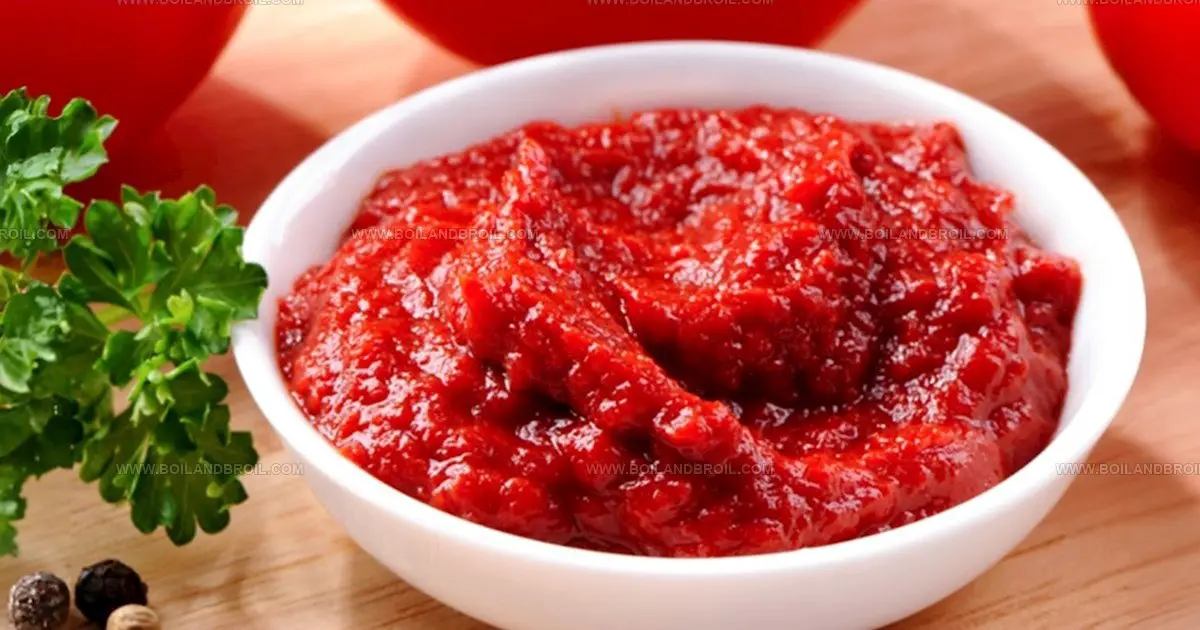
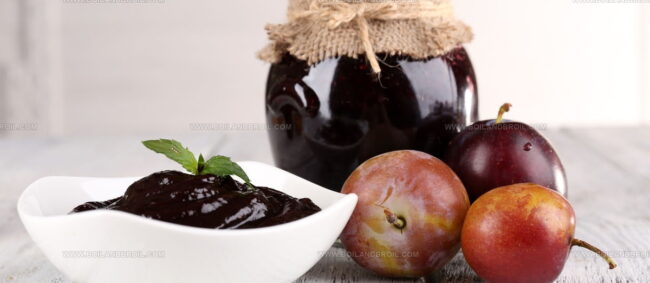
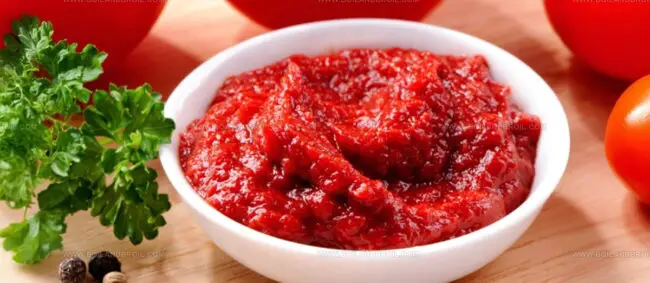
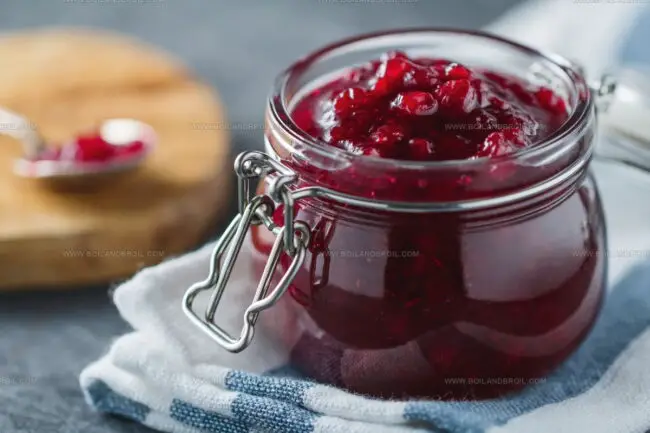
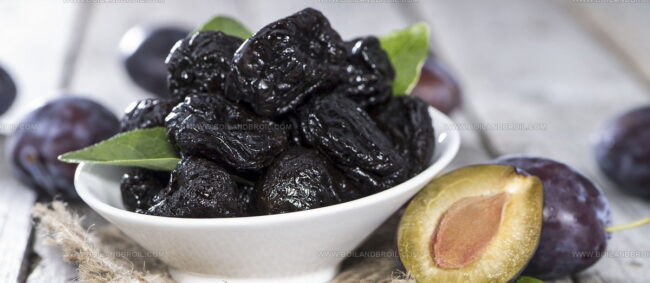
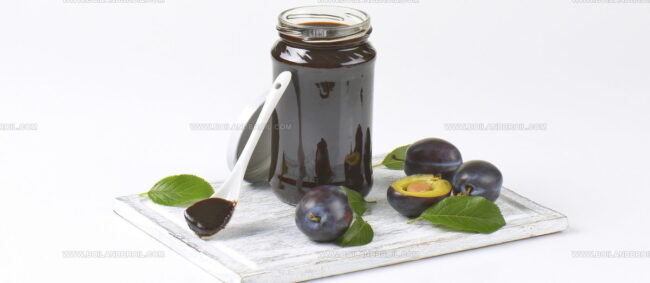
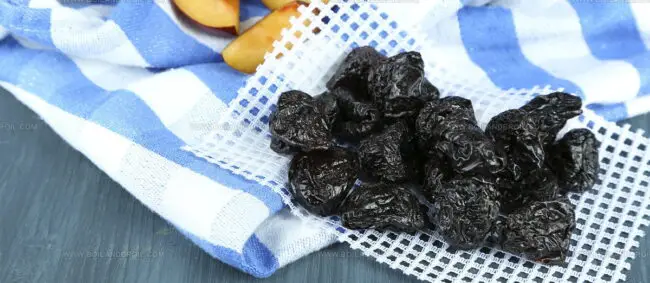
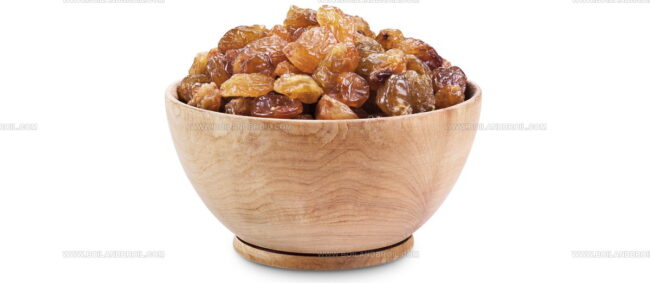
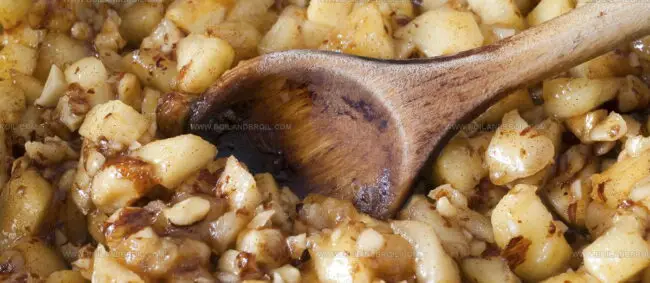

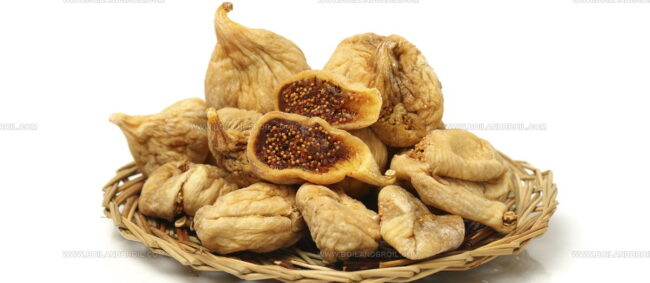
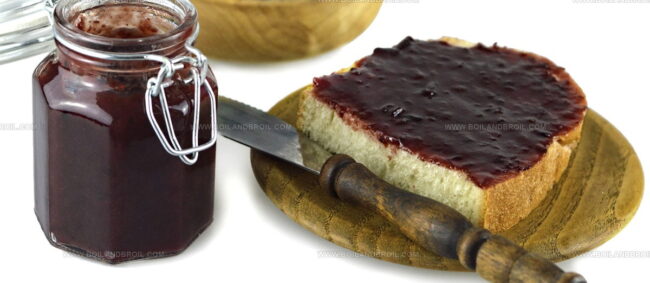
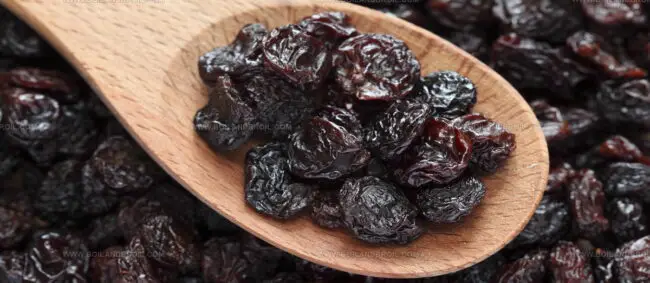
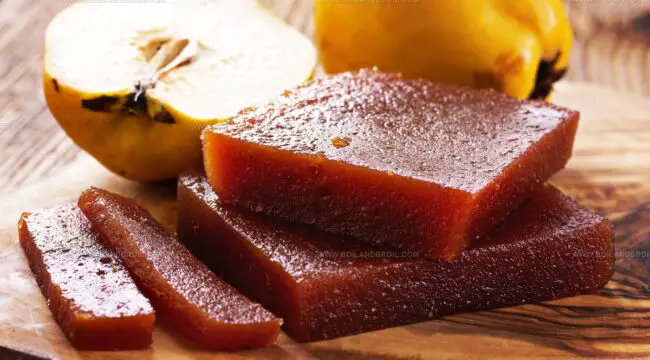
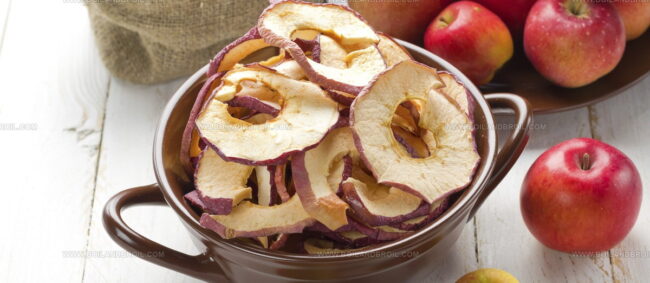
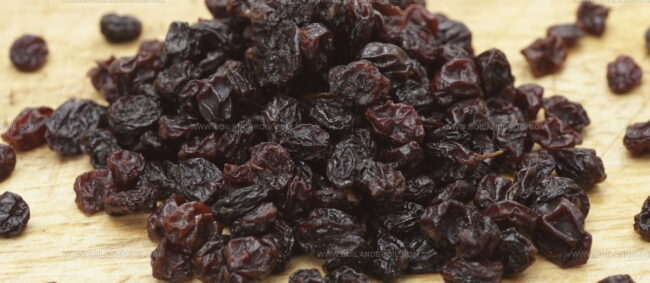
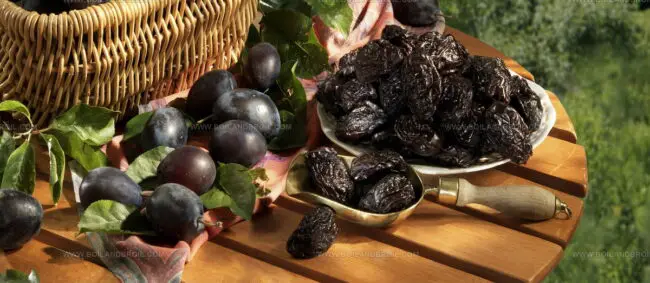
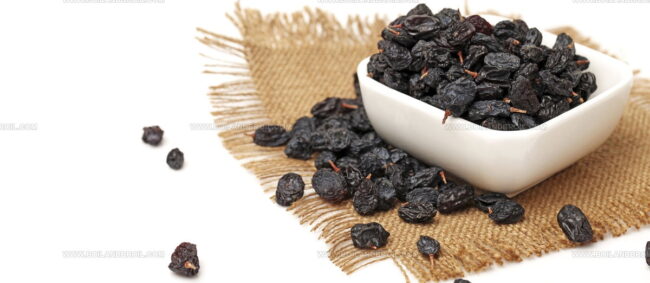
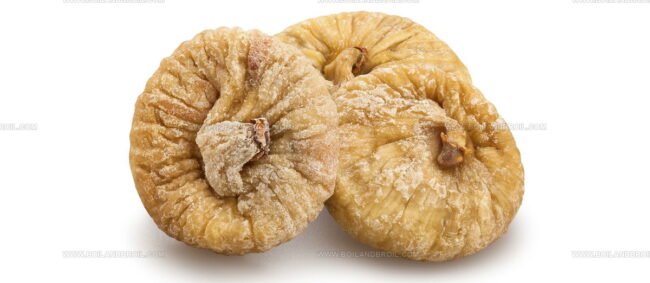
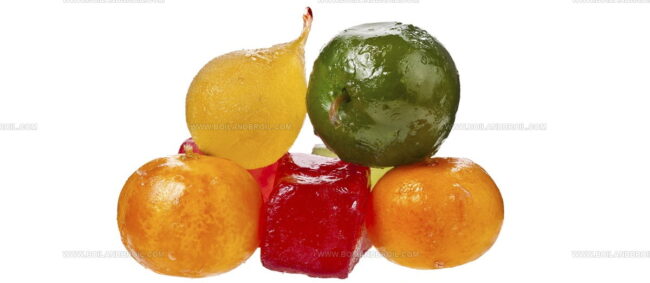
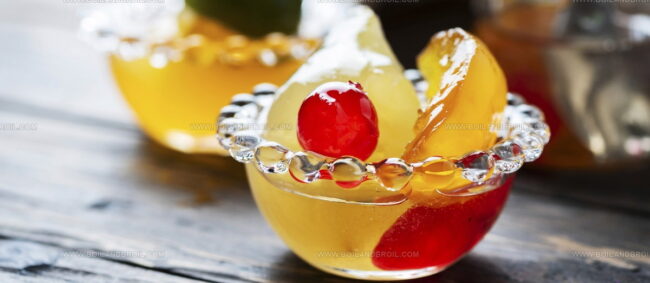
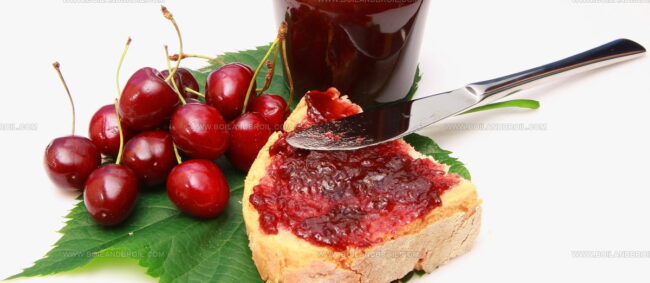
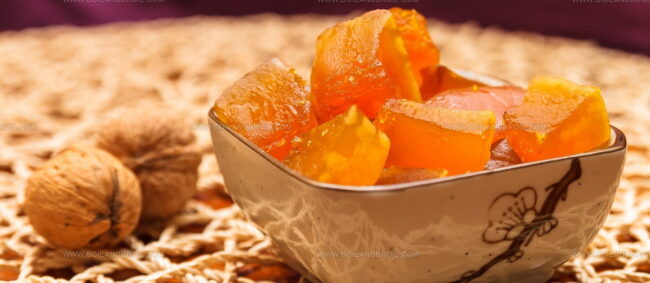
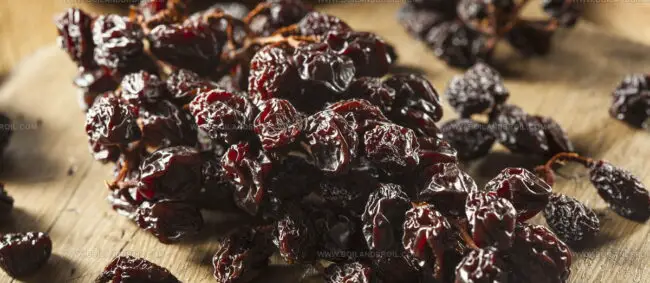
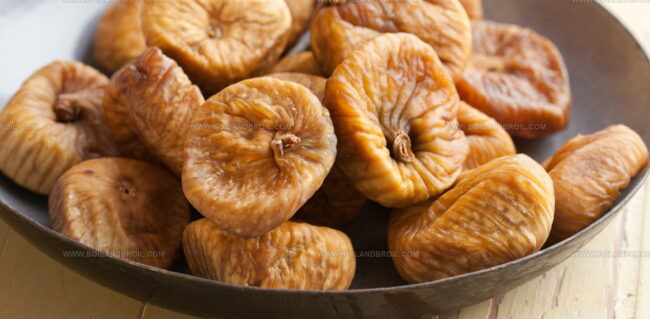
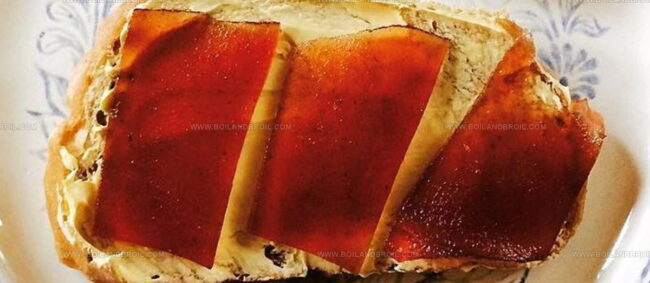
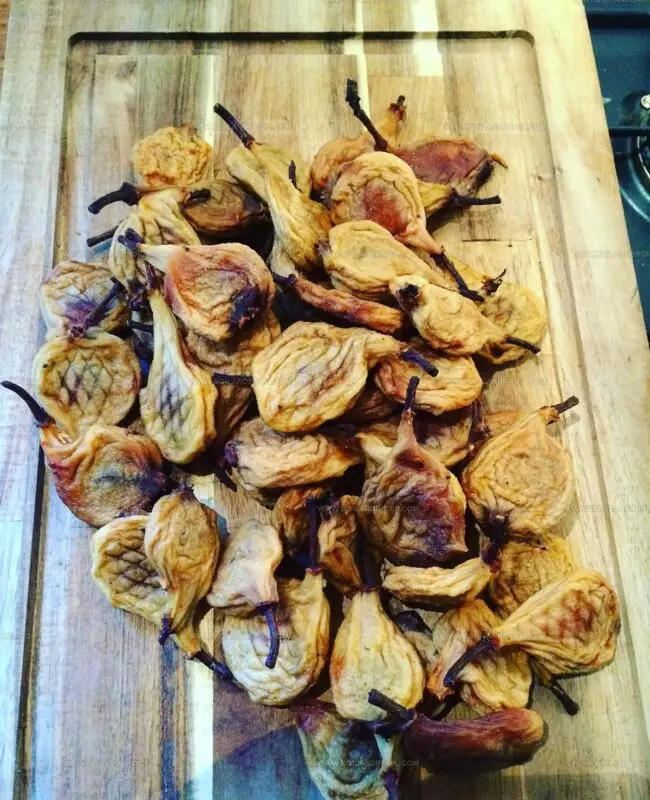

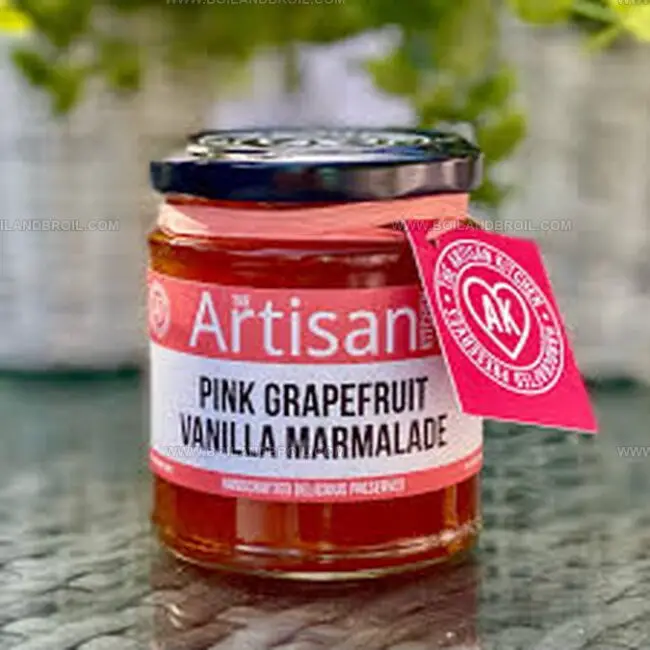
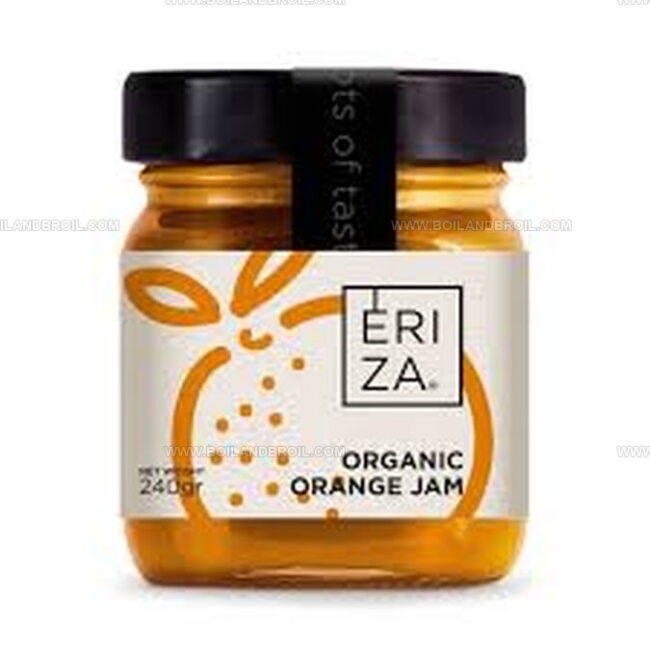
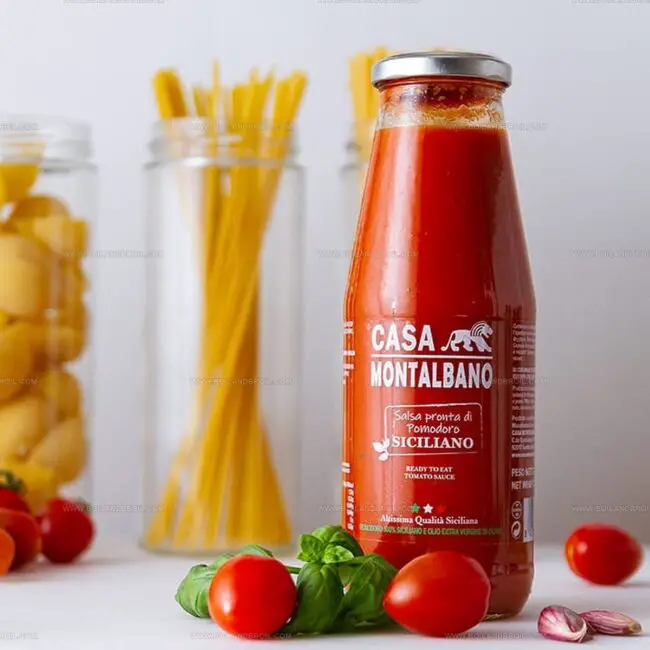
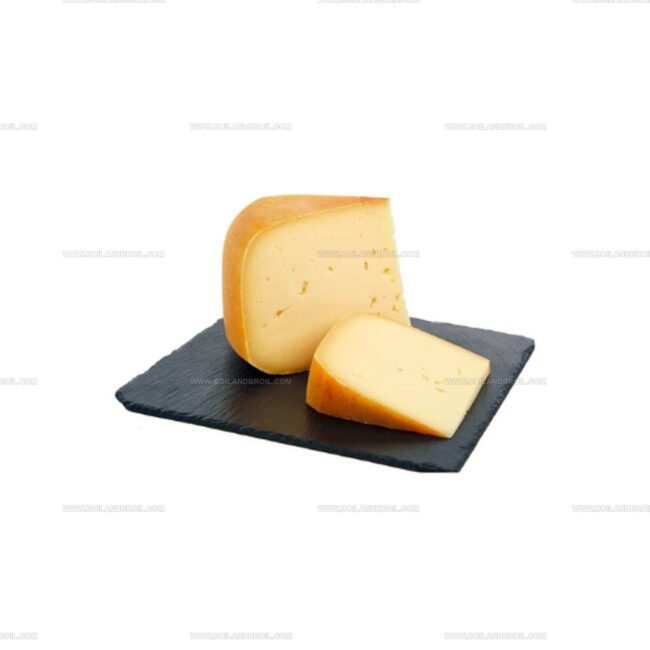
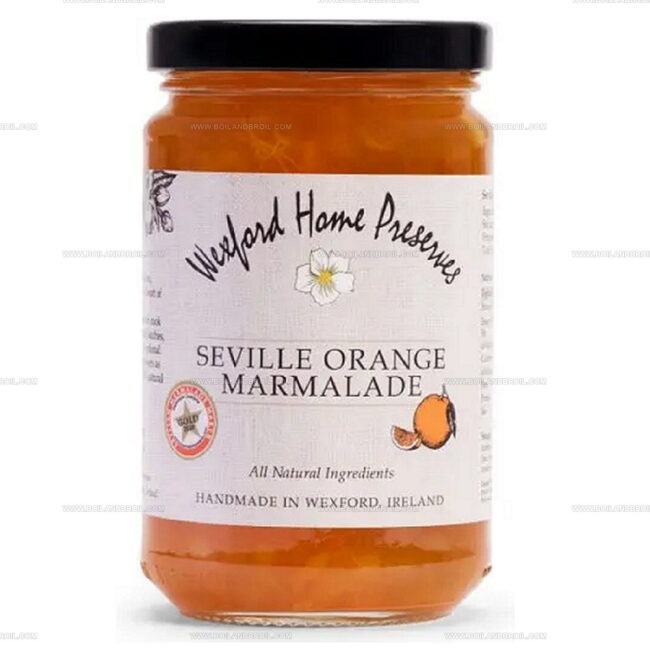
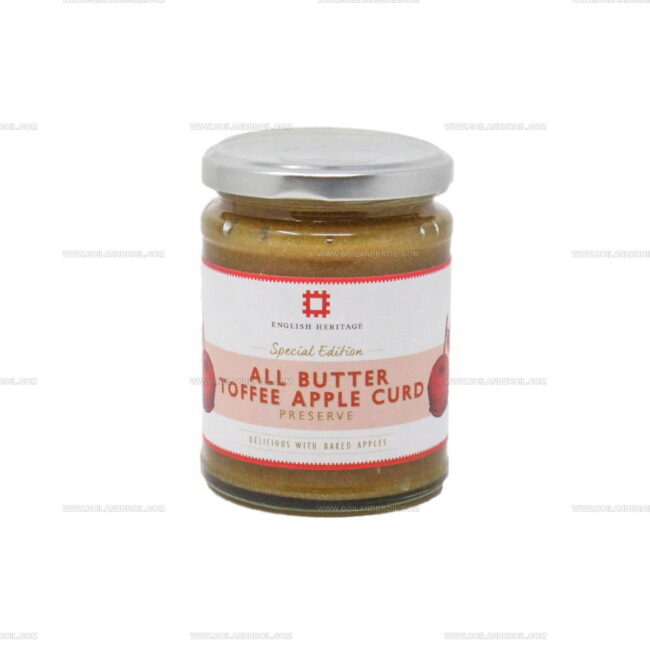
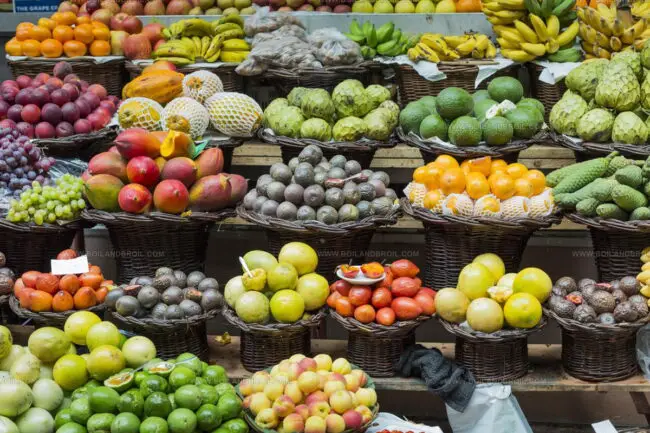
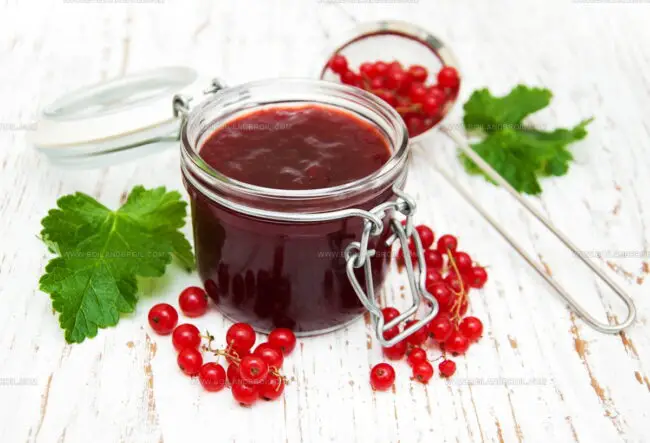
Clara Thompson
Recipe Developer & Culinary Educator
Expertise
Developing accessible single-serving recipes, Food writing and content creation, Plant-based and allergen-friendly cooking, Culinary education and workshop facilitation
Education
Oregon Culinary Institute (Portland, OR)
Diploma in Culinary Arts
Specialized in plant-based cooking and sustainable kitchen practices.
Portland Community College
Certificate in Food Writing and Media
Focused on recipe writing, food photography, and digital content creation.
Clara’s food journey began with a curiosity for color, texture, and ingredients pulled straight from the garden. Her background in plant-forward cooking and creative writing gives her a unique edge – she makes healthy, flavorful food feel inviting, not intimidating.
She specializes in meals that work for busy lives and different diets, all without sacrificing taste. Clara’s voice comes through in every recipe she writes – clear, kind, and encouraging.